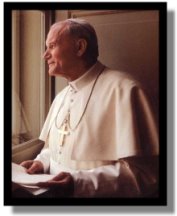Man enough?
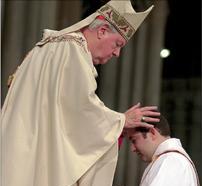
If God called,
would you be man enough
to call back?
from the Vocations website of the Archdiocese of New York
 A Penitent Blogger
A Penitent Blogger
Mindful of my imperfections, seeking to know Truth more deeply and to live Love more fully.
Quid sum miser tunc dicturus? Quem patronum rogaturus? Cum vix iustus sit securus?
Recordare, Iesu pie, Quod sum causa tuae viae: Ne me perdas illa die...

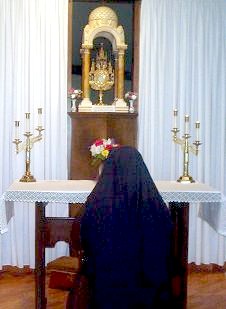 "Our way of responding to this call as Poor Clares of Perpetual Adoration revolves around our Lord in the Most Blessed Sacrament. We begin each day at the foot of His Eucharistic Throne - greeting our Lord and our King with the Church’s official prayer of the Divine Office. This, and a period of silent meditation, prepares our hearts to receive our Lord in Holy Communion at the Sacrifice of the Mass. Strengthened by this great Sacrament, we are able to begin our daily work.
"Our way of responding to this call as Poor Clares of Perpetual Adoration revolves around our Lord in the Most Blessed Sacrament. We begin each day at the foot of His Eucharistic Throne - greeting our Lord and our King with the Church’s official prayer of the Divine Office. This, and a period of silent meditation, prepares our hearts to receive our Lord in Holy Communion at the Sacrifice of the Mass. Strengthened by this great Sacrament, we are able to begin our daily work. "On November 2, 2002 Mother Dolores Marie & Sr. Imelda Marie left Our Lady of the Angels Monastery founded by Mother Angelica, in Hanceville Alabama to restart the Monastery here in Portsmouth, Ohio. After being here for 3 years we now have 2 novices and 1 postulant with many inquiries from young women. God is so good and we ask you for your prayers that many young women may enter our order so that this Monastery may be a power house of prayer.
"On November 2, 2002 Mother Dolores Marie & Sr. Imelda Marie left Our Lady of the Angels Monastery founded by Mother Angelica, in Hanceville Alabama to restart the Monastery here in Portsmouth, Ohio. After being here for 3 years we now have 2 novices and 1 postulant with many inquiries from young women. God is so good and we ask you for your prayers that many young women may enter our order so that this Monastery may be a power house of prayer. At the end of today's General Audience, on the Feast of the Chair of Peter, the Holy Father Pope Benedict XVI announced a Consistory to be held March 24, 2006 in which new Cardinals will be created:
(The following are over 80 and would be ineligible to vote in a papal conclave)
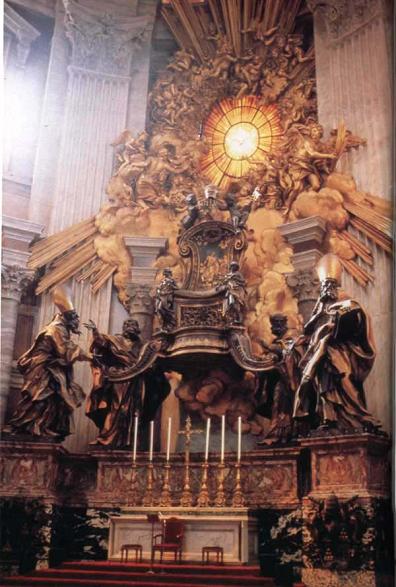
 Eternal God,
Eternal God,
Voting will end at Noon, Tuesday, February 21. (I'm not sure which time zone)
Domenico Bettinelli gives a little background on these awards (hat tip: Happy Catholic)
 Father,
Father,
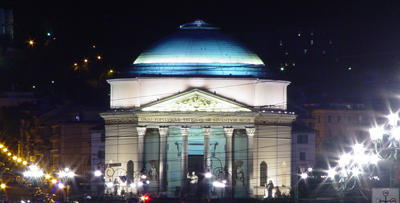 Another of the interesting Church buildings that appears during television coverage of the Olympics in Torino is the Chiesa della Gran Madre di Dio ("Church of the Great Mother of God").
Another of the interesting Church buildings that appears during television coverage of the Olympics in Torino is the Chiesa della Gran Madre di Dio ("Church of the Great Mother of God").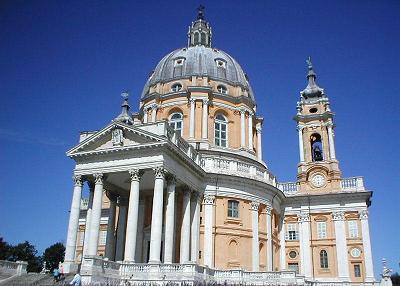
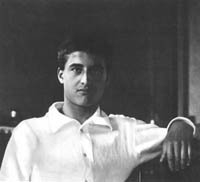 Blessed Pier Giorgio, a young man from a rich and powerful Torino family, was a third order Dominican, contracted polio while ministering to the poor, and died in 1925 at the age of 24.
Blessed Pier Giorgio, a young man from a rich and powerful Torino family, was a third order Dominican, contracted polio while ministering to the poor, and died in 1925 at the age of 24. "We are Apostles of the Sacred Heart of Jesus, consecrated women of the Church. Impelled by the Spirit active in each of us and faithful to the charism of Clelia Merloni, we seek to make the compassionate Heart of Christ better known, loved and served. We do this by personal and communal witness to the Gospel, commitment to growth in holiness and ministry to the people of God."
"We are Apostles of the Sacred Heart of Jesus, consecrated women of the Church. Impelled by the Spirit active in each of us and faithful to the charism of Clelia Merloni, we seek to make the compassionate Heart of Christ better known, loved and served. We do this by personal and communal witness to the Gospel, commitment to growth in holiness and ministry to the people of God."